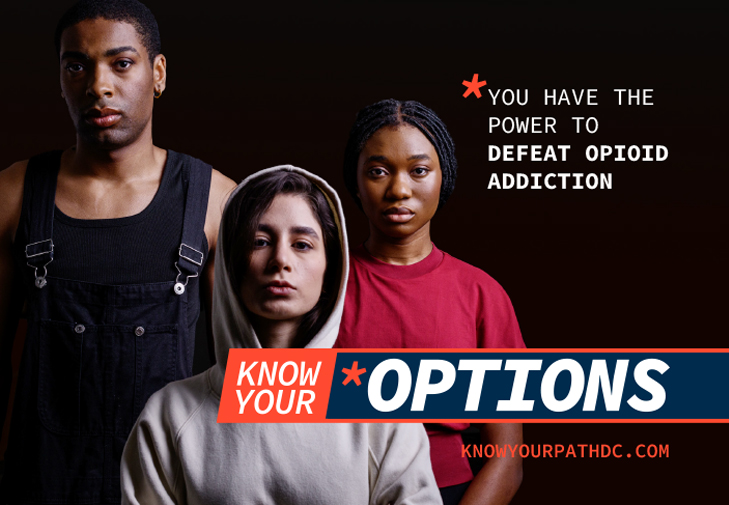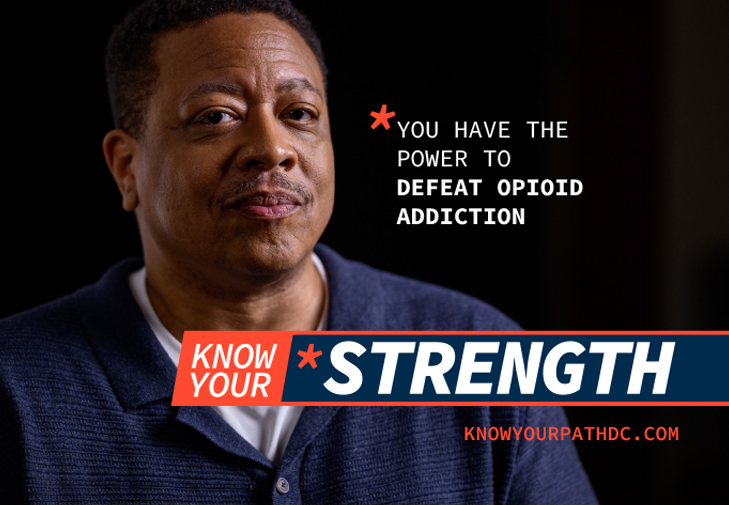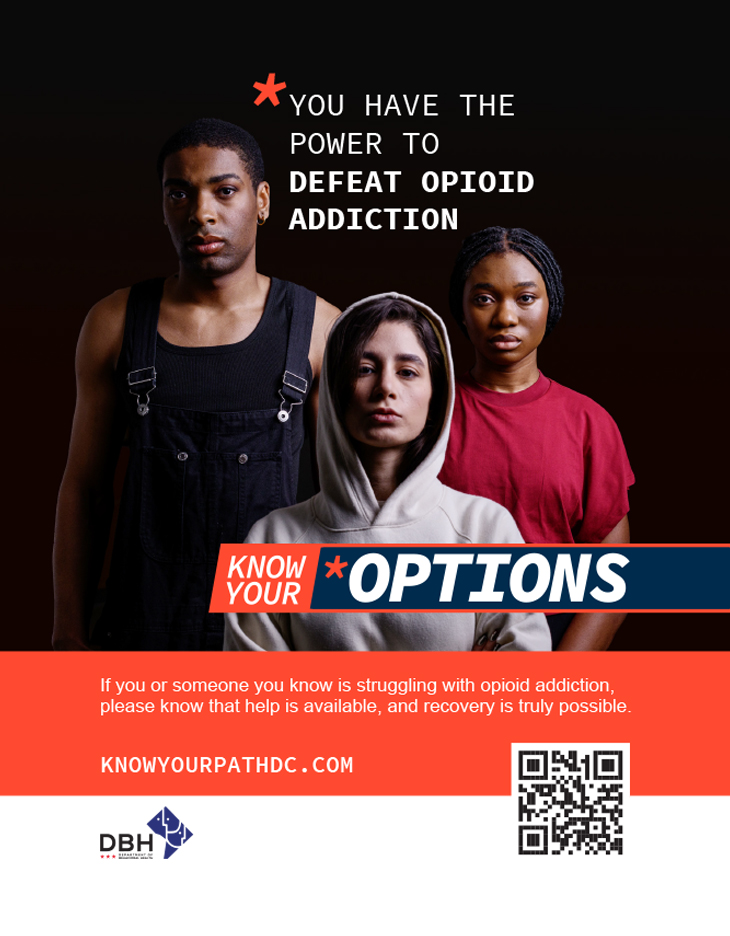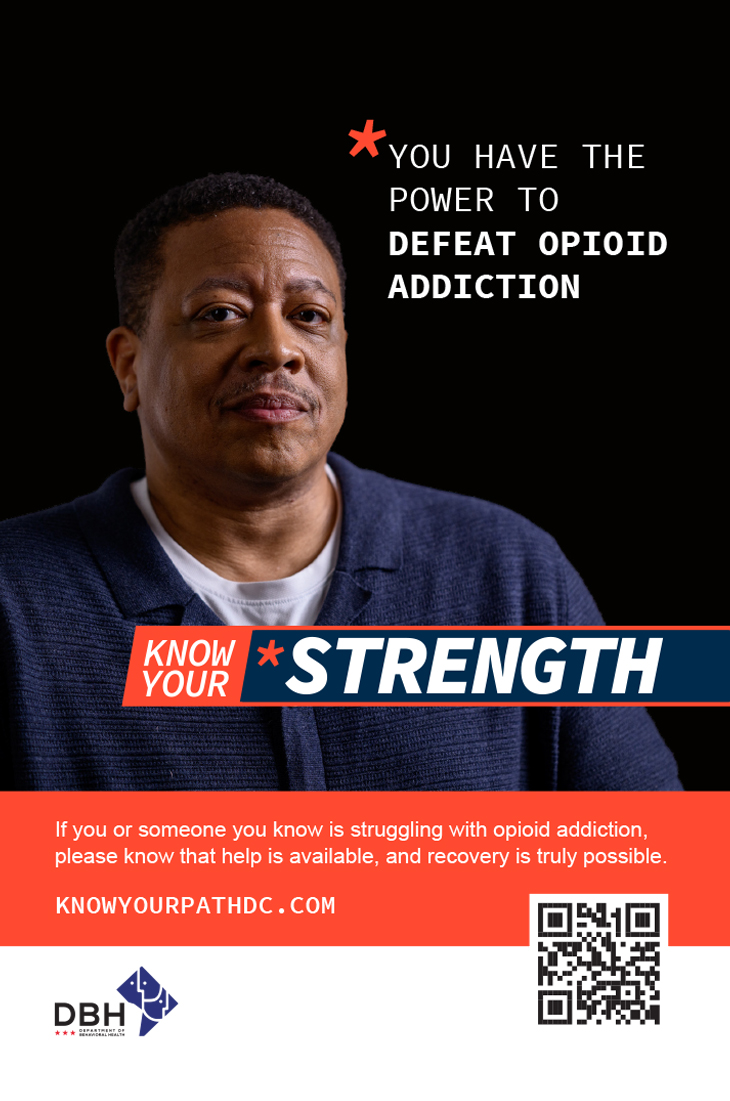
Help is available now, 24/7
Downloadable Materials
Palm Card
"Options"

Palm Card
"Strength"

Flyer

Poster

Contact Info
Text LiveLongDC to 888-811 to find treatment for substance use and mental health, housing resources, access to naloxone/Narcan and safe syringes, and general support for your recovery.
Frequently Asked Questions
Q: Where can I find help for myself or a loved one struggling with opioid dependence?
- A: You can text LiveLongDC to 888-811 to find treatment for substance use and mental health, housing resources, access to naloxone/Narcan and safe syringes, and general support for your recovery.
- A: The Department of Behavioral Health (DBH) certifies a network of community-based providers to provide substance use disorder (SUD) services including detoxification, residential and outpatient services based on individual need. DBH also provides a range of prevention and recovery services. Visit DBH Substance Use Disorder Services for more information.
Q: Where can I get training on how to use Naloxone?
- A: Visit the DBH Training Institute to access a free, online naloxone training module. You can also email naloxone@dc.gov with training requests for groups of five or more to be led by a certified naloxone trainer.
Q: Where can I find more data and information on opioid use in the District of Columbia?
- A: The Government of the District of Columbia has compiled a detailed dashboard that provides in-depth analysis surrounding events and characteristics of individuals who experienced non-fatal and/or fatal opioid overdoses in the District. LIVE.LONG.DC is a one-stop hub for Washington, DC’s combined efforts for ending the city’s opioid epidemic. You can find the District’s strategic plan, opioid use data, resources, and events here.
Q: What are DC Prevention Centers (DCPCs)?
- A: DC Prevention Centers (DCPCs) are conveniently located throughout the city serving residents in 120 neighborhoods of the eight wards. The Prevention Centers are dynamic hubs designed to strengthen the community’s capacity to prevent and curtail the use of drugs at the local level.
Q: What are Peer-Operated Centers?
- A: The Peer-Operated Centers are organizations with men and women who are themselves in recovery from drugs, alcohol, and other addictions, and can help individuals navigate treatment and recovery services in the District.
